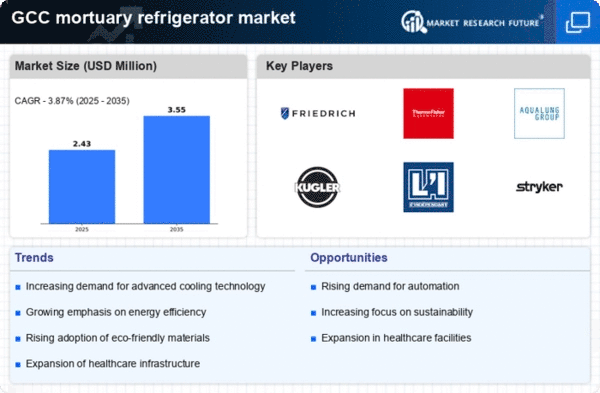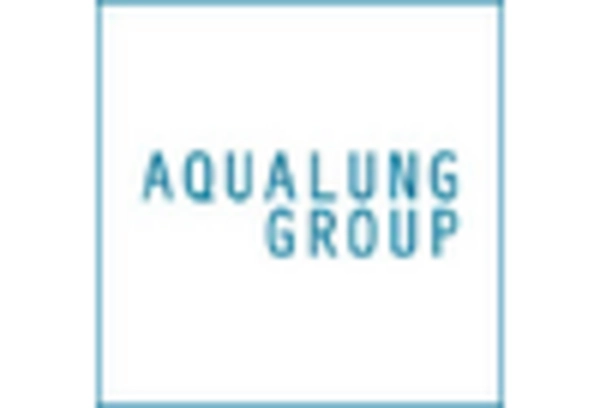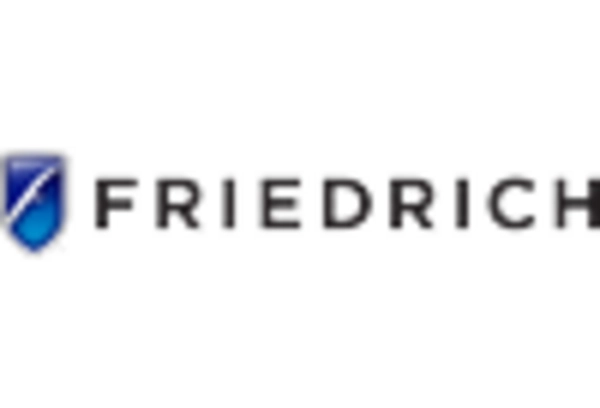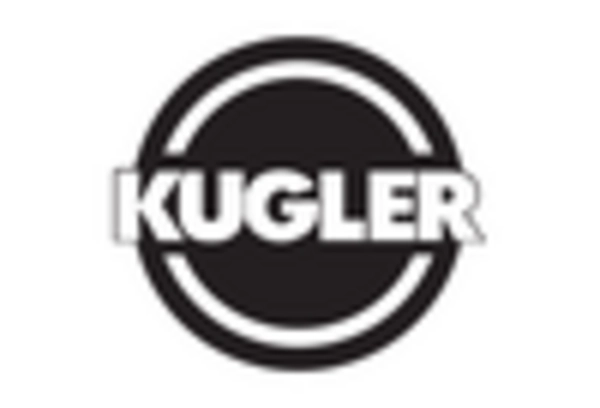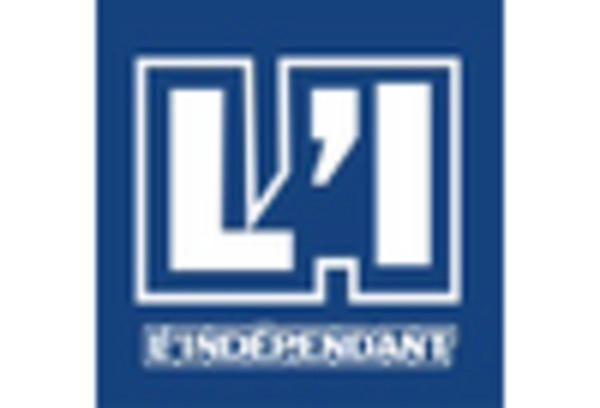Growth of the Healthcare Sector
The growth of the healthcare sector in the GCC is a significant driver for the mortuary refrigerator market. As healthcare facilities expand and modernize, there is an increasing need for efficient mortuary services that can handle the rising number of cases. The healthcare sector's investment in infrastructure and technology is expected to enhance the overall quality of services provided, including mortuary care. This growth is reflected in the increasing budgets allocated for healthcare, which are projected to rise by approximately 5% annually in the coming years. Consequently, the mortuary refrigerator market is likely to benefit from this trend, as healthcare providers seek to improve their mortuary facilities and ensure they are equipped with the latest refrigeration technologies to meet the demands of a growing population.
Regulatory Compliance and Standards
The mortuary refrigerator market is significantly influenced by stringent regulatory compliance and standards set by health authorities in the GCC. These regulations ensure that mortuary facilities maintain proper hygiene and safety protocols, which include the use of high-quality refrigeration systems. Compliance with these standards is crucial for service providers to operate legally and ethically. As a result, there is a growing emphasis on investing in advanced mortuary refrigeration systems that meet these regulatory requirements. The market is projected to grow as facilities upgrade their equipment to adhere to these standards, which may involve substantial financial investment. This trend indicates a potential increase in the demand for technologically advanced mortuary refrigerators that not only comply with regulations but also enhance the overall quality of service provided.
Cultural and Religious Considerations
Cultural and religious considerations significantly impact the mortuary refrigerator market in the GCC. The region is home to diverse cultures and religions, each with specific practices regarding the handling of deceased individuals. This diversity necessitates the development of mortuary refrigeration solutions that cater to various cultural needs. For instance, certain communities may require specific temperature settings or storage conditions to align with their beliefs and practices. As awareness of these cultural sensitivities grows, mortuary service providers are likely to seek refrigeration systems that accommodate these unique requirements. This trend indicates a potential expansion of the mortuary refrigerator market, as manufacturers strive to create customizable solutions that respect and honor the diverse cultural landscape of the GCC.
Increasing Demand for Mortuary Services
The rising population in the GCC region has led to an increased demand for mortuary services, thereby driving the mortuary refrigerator market. As urbanization continues to expand, the number of deaths is expected to rise, necessitating more efficient storage solutions for deceased individuals. According to recent statistics, the GCC's population growth rate is approximately 2.5% annually, which correlates with a growing need for mortuary facilities. This trend indicates that the mortuary refrigerator market will likely experience a surge in demand as service providers seek to enhance their operational capabilities and meet the needs of families during difficult times. The expansion of mortuary services is expected to create opportunities for manufacturers to innovate and provide advanced refrigeration solutions tailored to the specific requirements of the region.
Technological Innovations in Refrigeration
Technological innovations are playing a pivotal role in shaping the mortuary refrigerator market. The introduction of smart refrigeration systems equipped with IoT capabilities allows for real-time monitoring of temperature and humidity levels, ensuring optimal storage conditions for deceased individuals. These advancements not only enhance the efficiency of mortuary operations but also improve the overall quality of care provided. The market is witnessing a shift towards energy-efficient models that reduce operational costs while maintaining compliance with health regulations. As the demand for such innovative solutions increases, manufacturers are likely to invest in research and development to create more sophisticated mortuary refrigeration systems. This trend suggests a promising future for the mortuary refrigerator market, as facilities seek to adopt cutting-edge technologies to improve their service offerings.


